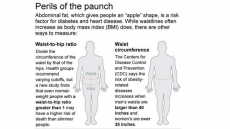CALGARY — Researchers at Calgary's Rockyview General Hospital believe the human heart provides valuable data when it comes to predicting oncoming illness and the information could help reduce the frequency of post-surgery complications.
Dr. David Liepert, the hospital’s director of perioperative medicine, says a lack of variability in a heart rate is an indicator of medical stress.
"When you're healthy, your heart rate is always going up and down all the time in response to your life, in response to your body, in response to what you’re doing at the time," says Liepert, the lead investigator of the study.
"The sicker you get, the less your heart rate varies because it becomes rigid, it becomes fixed, it becomes focused on dealing with the sickness."
Liepert says a racing heart rate or a relatively slow heart rate do not necessarily indicate impending issues, it’s the lack of fluctuation in time between beats, no matter the measure beats per minute, that bring cause for concern.
The idea of utilizing heart rate variability (HRV) data as a predictor of illness came to Liepert following the floods that ravaged Calgary and other parts of southern Alberta in 2013.

While assisting with flood relief, Liepert says he contracted a cardiac virus which damaged his heart. Prior to the diagnosis, he had detected a change in his heart rate.
"I knew something was going on because I have always had a very variable heart rate," he says. "It goes up when I breathe in and it goes down when I breathe out and that’s normal."
Acting on his hunch, Liepert approached Biotricity, a medical technology firm, and the organization developed a monitor that samples a heart rate 1,000 times in a second.
"From beat to beat, the distance between the beats gives you a different heart rate for every single heartbeat. Heart rate variability is monitoring those miniscule differences in the length of time between individual beats to actually give you, what we call, the instantaneous heart rate.
"If you’re not resolving on the millisecond level, you’re not going to be able to pick up the same resolution of data."
Liepert says his research team intends to develop a perioperative wellness monitor that will follow a patient from pre-surgery, through the procedure, and throughout the recovery process.
"The important thing is the 30 days after surgery," says Liepert. "Monitoring your return to full wellness, getting back to normal activity, and getting back to normal life."
The research team believes the monitor could result in a reduction of post-surgery complications including wound infections and blood clots.




